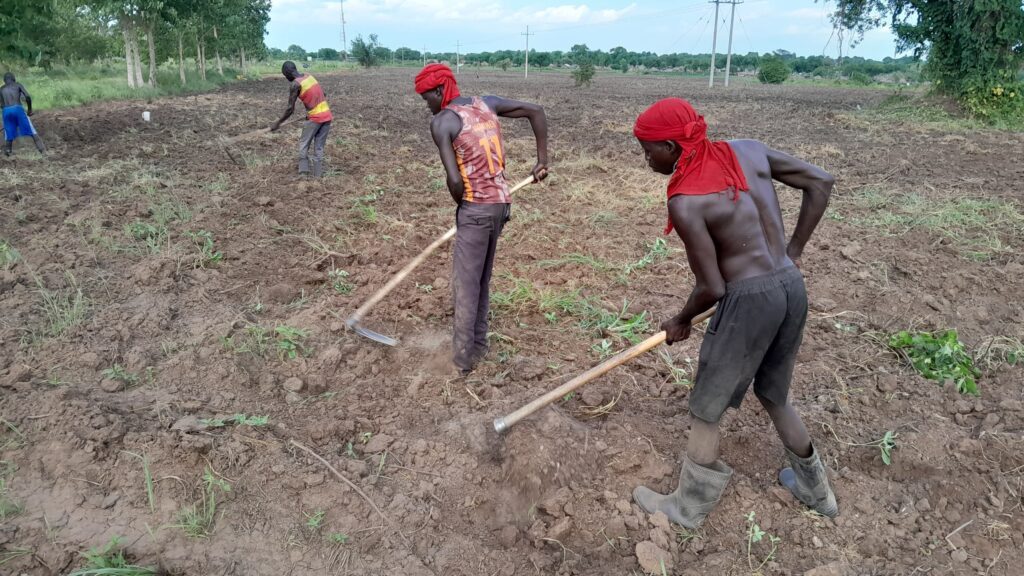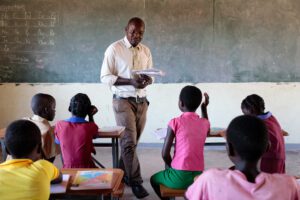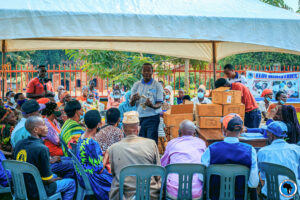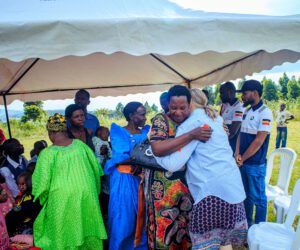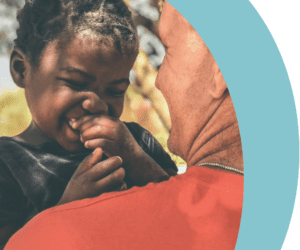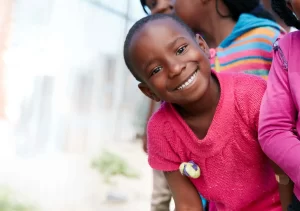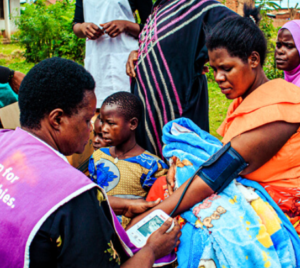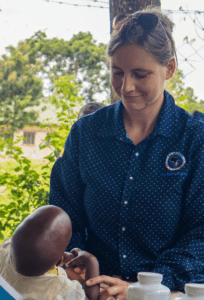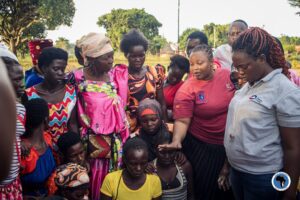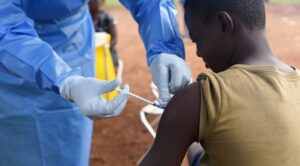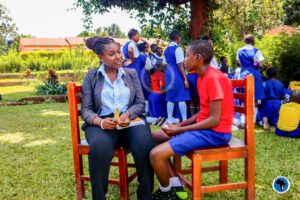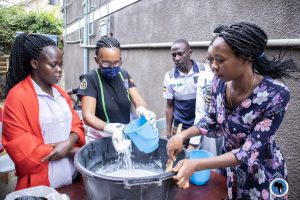Off the back of organizing the recently-concluded East Africa Carbon Markets Forum (EACMF) in Kampala, Uganda, where the themes of carbon markets and climate financing in East Africa were brought to the forefront, ELOI MINISTRIES caught up with ANETE GAROZA.
Garoza is an international public speaker, climate lawyer, Forbes 30 Under-30 awardee, and co-founder of 1MTN, a company dedicated to high-quality carbon removal. As the organizer of the inaugural event, she shared insights on climate change, carbon markets, financing, and how Uganda stands to benefit from this movement.
What is 1MTN and why did you start it?
1MTN [One Million Tonne Nation] is a high-quality nature-based carbon removal project developer in Africa. We are on a mission to restore 1 million hectares of degraded land by 2030.
We are planting polyculture native bamboo with an emphasis on biodiversity management. Our projects create thousands of jobs and a sustainable future for local communities. Join us on our mission. We started our company to tackle climate change through land restoration projects, starting with bamboo afforestation efforts in Uganda.
Our focus is on creating tangible, measurable impact by enhancing the ecosystem and community resilience.
What are carbon markets, carbon credits and why are they important for Uganda?
Carbon markets and carbon credits are tools that allow for the trading of emission allowances to meet international carbon reduction targets. In Uganda, they are essential for mobilizing financial resources towards sustainable development and enabling the country to participate in global efforts to reduce emissions.
You created the East Africa Carbon Markets Forum in Kampala; tell us more about it. What does it aim to achieve?
The East Africa Carbon Markets Forum in Kampala is an initiative we started to foster dialogue among stakeholders about the benefits and implementation of carbon markets in Uganda. The forum aims to educate, engage, and create partnerships that leverage carbon markets for economic, and environmental benefits across the country.
For one who didn’t follow, or attend the just-concluded East Africa Carbon Markets Forum; in brief, outline the key takeaways from the event.
Transparent data disclosure, robust verification processes; strong frameworks for international cooperation. Engagement with local communities, innovative solutions like carbon credit ratings and insurance; links between carbon markets and sustainable tour- ism, and new financial products.
Why did you start the 10,000 hectares project in Uganda and not say, Tanzania that has a favourable land policy? And why Nwoya district in particular?
We chose to initiate the 10,000 hectares project in Uganda, particularly in Nwoya district, due to the unique combination of community readiness, land availability, and the urgency of environmental challenges in the region.
While Tanzania also has favourable land policies, Nwoya offered immediate opportunities to integrate community involvement with reforestation efforts.
The tree planting project you have embarked on in Northern Uganda is made up of bamboo trees. Why bamboo?
We selected bamboo for our tree planting project due to its fast growth rate, environmental benefits, and economic potential. Bamboo helps in soil stabilization, absorbs carbon quickly, and can be harvested for various uses, providing sustainable income sources for local communities.
Besides bamboo, we are introducing other practises like intercropping and food gardens that can coexist with the afforested areas, providing additional income and food security for the local communities.
You have mentioned before that the bamboo planting project has created more than 3,000 jobs; what type of jobs are these?
The bamboo planting project will create over 3,000 jobs in roles like: Planting and nursery management, community outreach and administrative support; plantation managers, security guards; fire monitors, GIS experts; and many more.
These jobs not only provide income but also enhance local capacities in sustainable agriculture and forestry management. At the moment, we have a 400-hectare afforested area with 17 permanent employees.
As a climate lawyer, what do you think are the weak links of the National Climate Change Act of Uganda?
I think the current Act developments are on the right track. In spite of that, there needs to be more enlightenment project monitoring, and community benefit accounting.
On climate financing, $100 billion a year has been set aside by developed countries to combat the climate change crisis. In your assessment, is East Africa benefitting from this?
In my opinion, there is currently only a small amount of money flowing into East African carbon markets. This situation will scale only when climate regulations are passed in all East African countries. The money is available, but it’s not being deployed in the right place. We need to advocate for trust in the market and for faster investments.
Many people are joining climate change activism because of the doors it opens. Unlike 1MTN, their work on the ground isn’t felt. Have you come across this problem?
Every action counts. We are a commercial company who believe in a 3P model — people, planet, and profit. Climate action projects will be sustainable if we find a way to make them profitable for every stakeholder.
Which sectors can carbon markets directly impact in Uganda?
The tourism sector. Uganda is a land of breathtaking beauty and vibrant ecosystems. Be that as it may, sustainable tourism in Uganda is not just about enjoying the natural wonders our country offers; it’s about preserving them.
Tourism commitment to sustainability ensures that future generations can also experience the majestic mountain gorillas of Bwindi, the sprawling savannahs of Queen Elizabeth national park, and the mist-covered peaks of the Rwenzori mountains.
However, the challenge of climate change looms large. Carbon markets, an innovative tool for reducing global carbon emissions, can be a crucial ally in our efforts. By valuing the carbon stored in our forests, wetlands, and protected areas, carbon markets incentivize conservation, and provide financial mechanisms to support our local communities in their efforts to protect these habitats.
In practice, how will a tourist’s visit earn the sector carbon credits?
Imagine a scenario where every visit to Uganda national parks contributes directly to conservation efforts through carbon credits. This not only helps mitigate global carbon emissions but also transforms our visitors into active participants in our sustainability journey.
What can the ministry of Tourism do to integrate the sector with carbon markets to access carbon credits?
The ministry should implement three key strategies. First, it should Integrate carbon credits by incorporating them into the tourism sector; this would create a direct funding stream for conservation projects. By doing that, tourists will see the tangible impact of their contributions, fostering a deeper connection with the land and its preservation.
Next, the establishment can engage the community. It’s essential that the benefits of both sustainable tourism and carbon markets reach our local communities. They are the stewards of our land and must be at the forefront of conservation efforts, empowered by fair compensation and employment opportunities.
Ultimately, policymakers can go ahead to form innovative partnerships by collaborating with international environmental organizations, governments and the private sector .
These partnerships will provide the necessary resources and expertise to maximize the benefits of carbon markets and sustainable tourism.
In conclusion, the synergy between sustainable tourism and carbon markets opens a promising pathway to environmental preservation and economic sustainability in Uganda.
Author: Bagombeka Job
Credit:: The Observer Uganda

